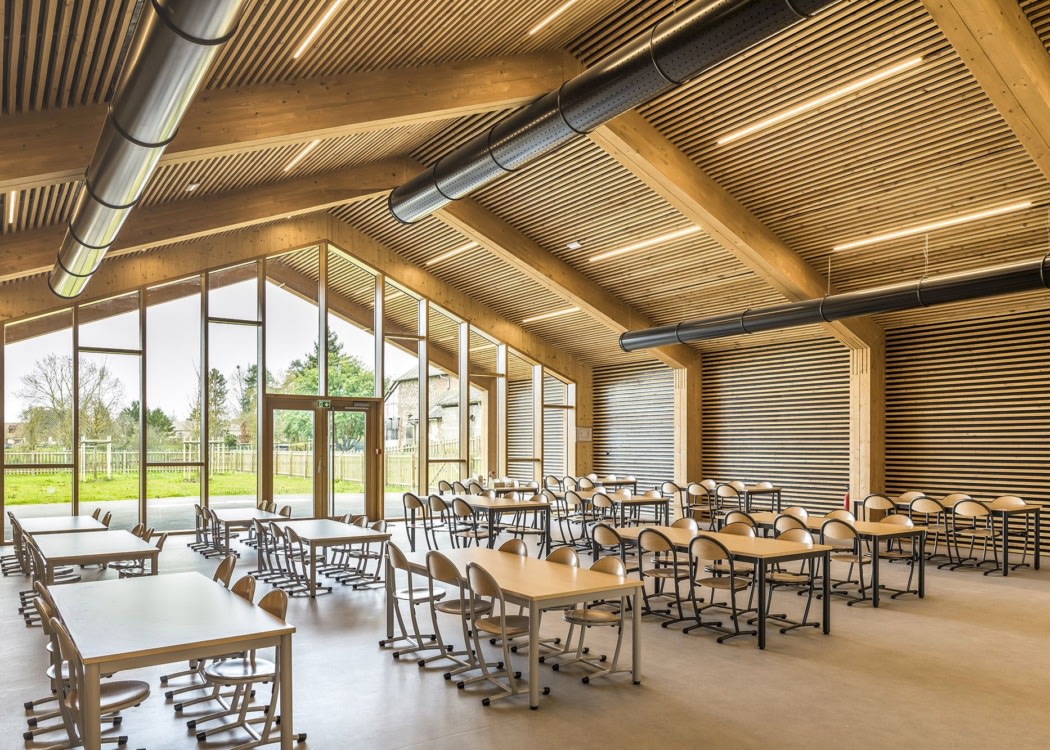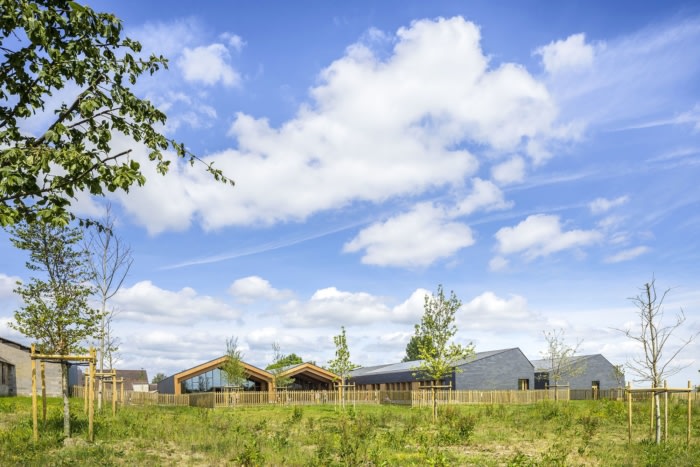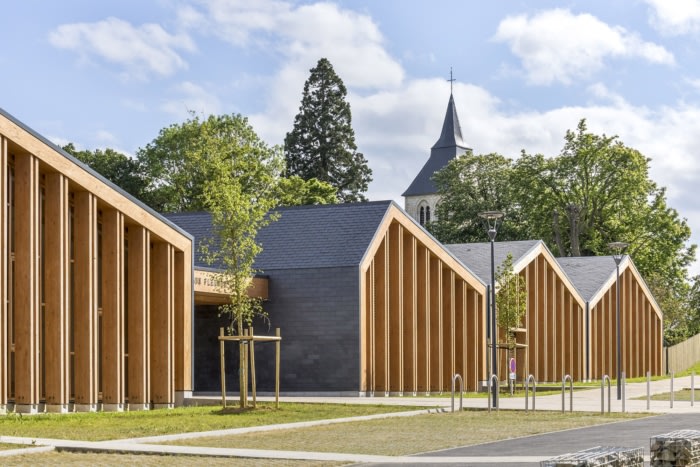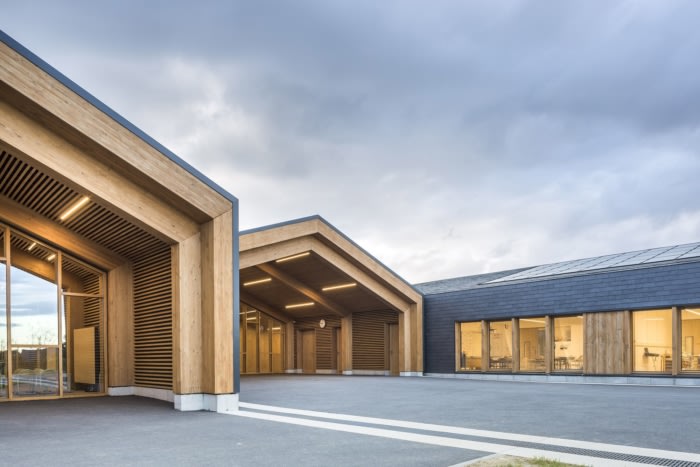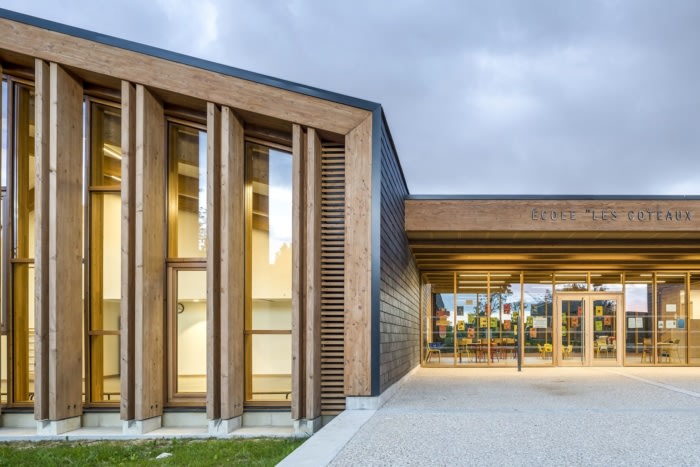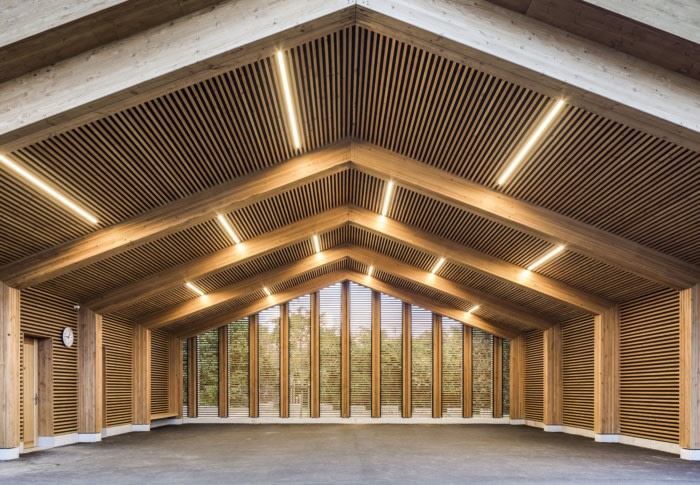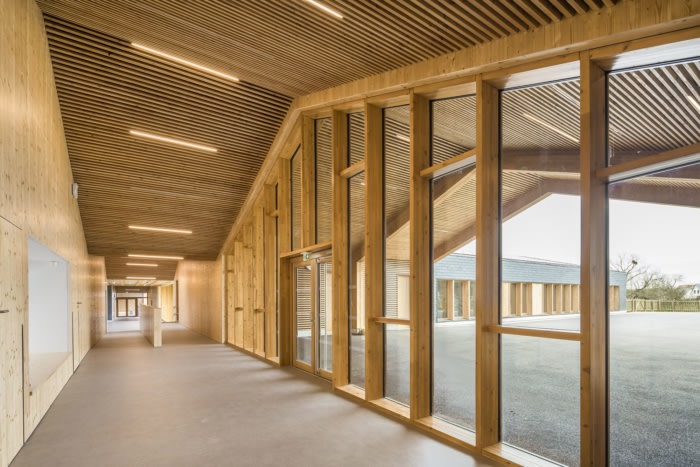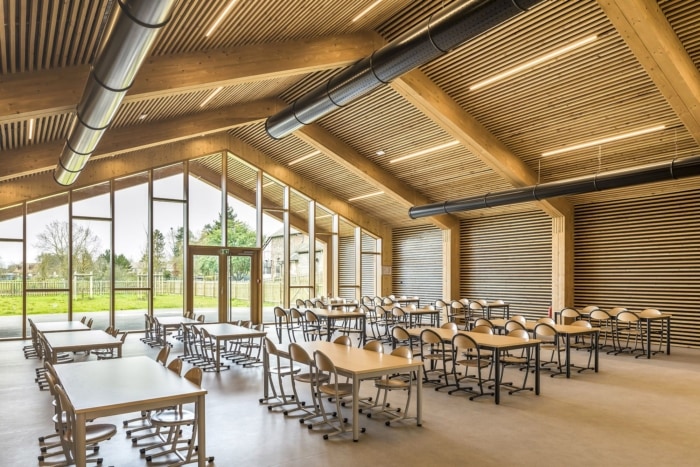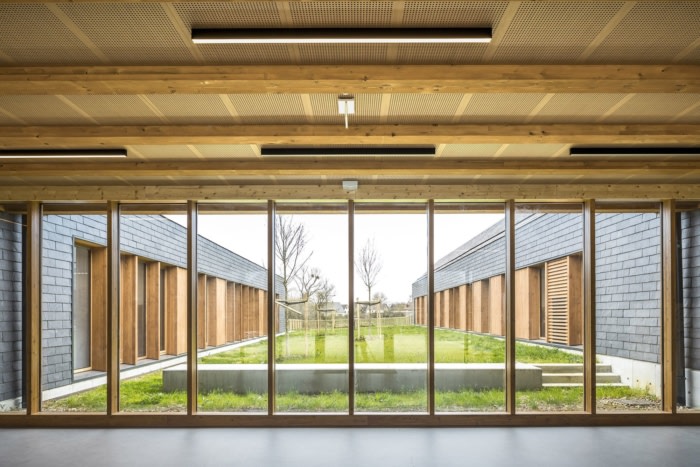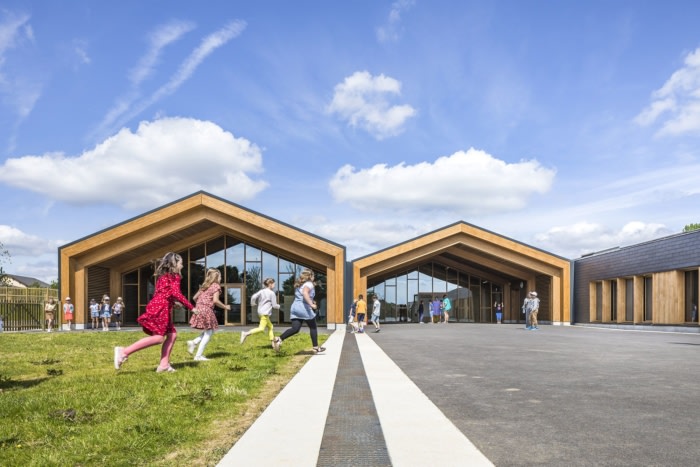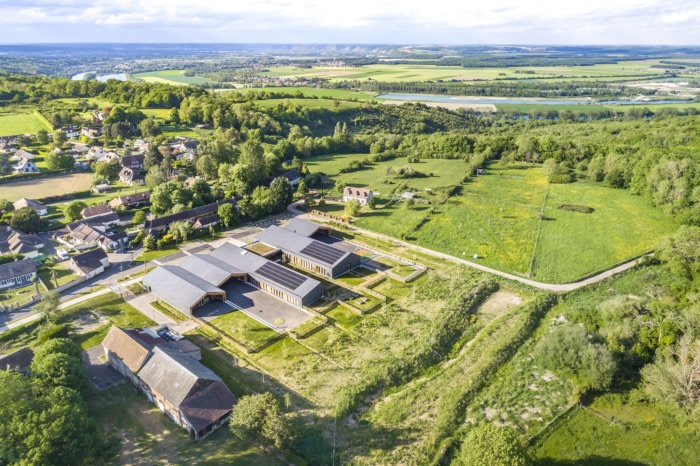Les Coteaux Fleuris School
HEMAA and Hesters Oyon collaborated to design Les Coteaux Fleuris School located in the hillsides of the Seine Valley in Heudebouville, France.
A landscape of wooded countryside
From the history of the place, the school borrows materials and morphology: the wood of the half-timbered houses of the city center for the glazed frames and the framework; the slate of the bell tower and the town hall to clad and protect the facades and the roof. The morphology of the houses and farm buildings on the site is reinterpreted, giving rise to large contemporary longères (longère is the name for a long, narrow dwelling, developing along the axis of its peak, typically inhabited by farmers and artisans and typical of the regions of Brittany and Normandy in northwestern France).The geography of the site orders the implantation of the work, the houses inserted according to the contours of the land and respect the natural soil. These guidelines delimit the playgrounds, draw orchards and become valleys collecting rainwater from the entire site to feed a landscaped basin below.
Anticipating the future
This layered organization anticipates the planned growth of the village and the future expansion of the school, with each household having the opportunity to expand. While respecting the original layout, classrooms can be added, the canteen, courtyards and yards can be extended and the equipment can accommodate more students and users. In this respect, the networks and fire safety systems already take this possible growth into account.The structural system in porticos, by the total absence of intermediate bearing point, allows this future evolution and a complete modularity of the premises. The facades and the roof are made up of modules pre-assembled off-site, combining air/water tightness, insulation and structure. The 5×2 m pieces, developed in 3D with the carpenter, have allowed to manage the construction time.
Carbon footprint
The construction of the school is part of a process to reduce its carbon footprint. The use of wood, slate, the integration of photovoltaic panels and the absence of fossil fuel consumption for the heating of the equipment make it possible to reach the ambitious E3C2 and BEPOS levels.Finally, the site was entirely built with local materials and companies established in the region.
Design: HEMAA and Hesters Oyon
Photography: Sergio Grazia

